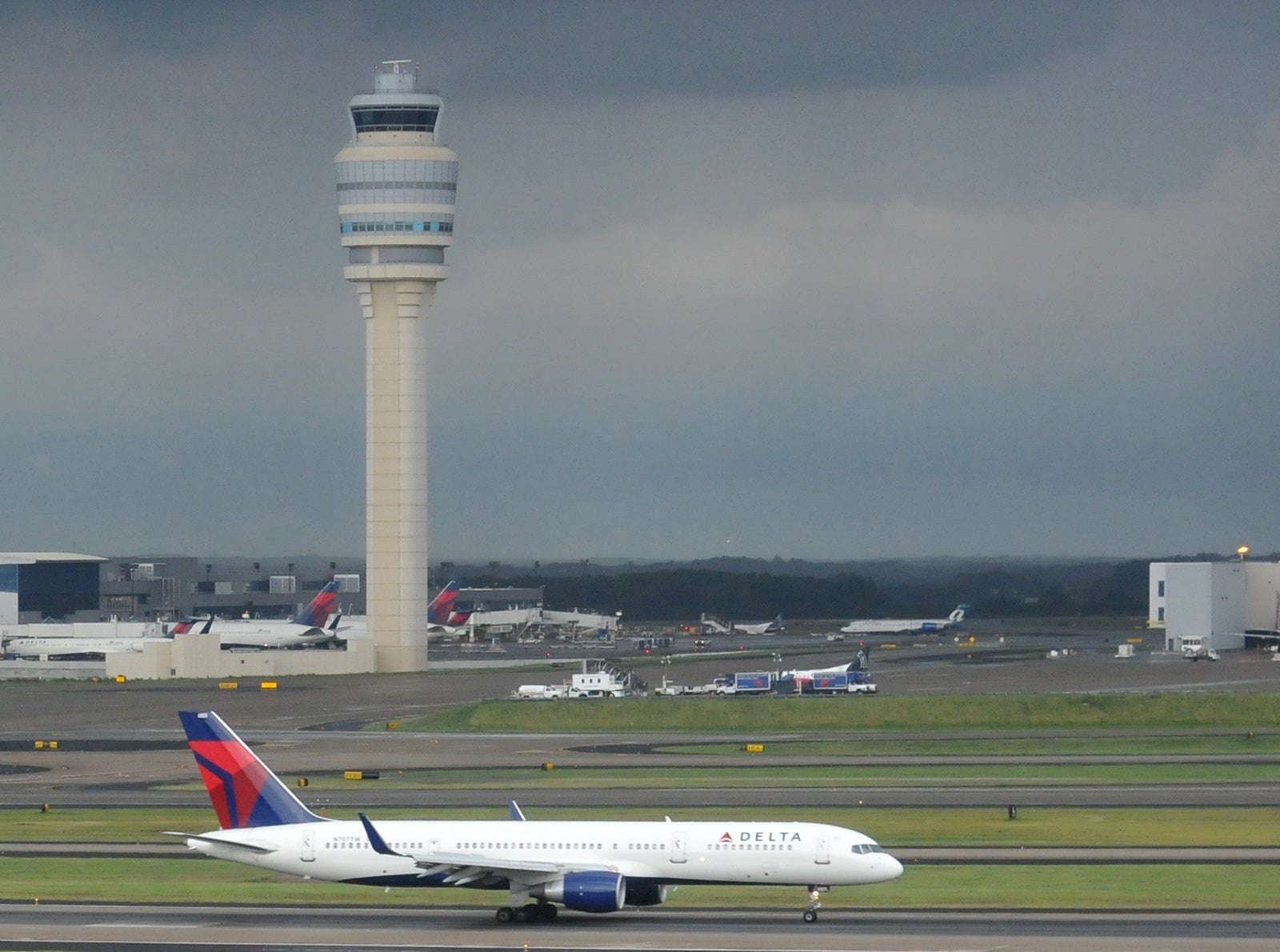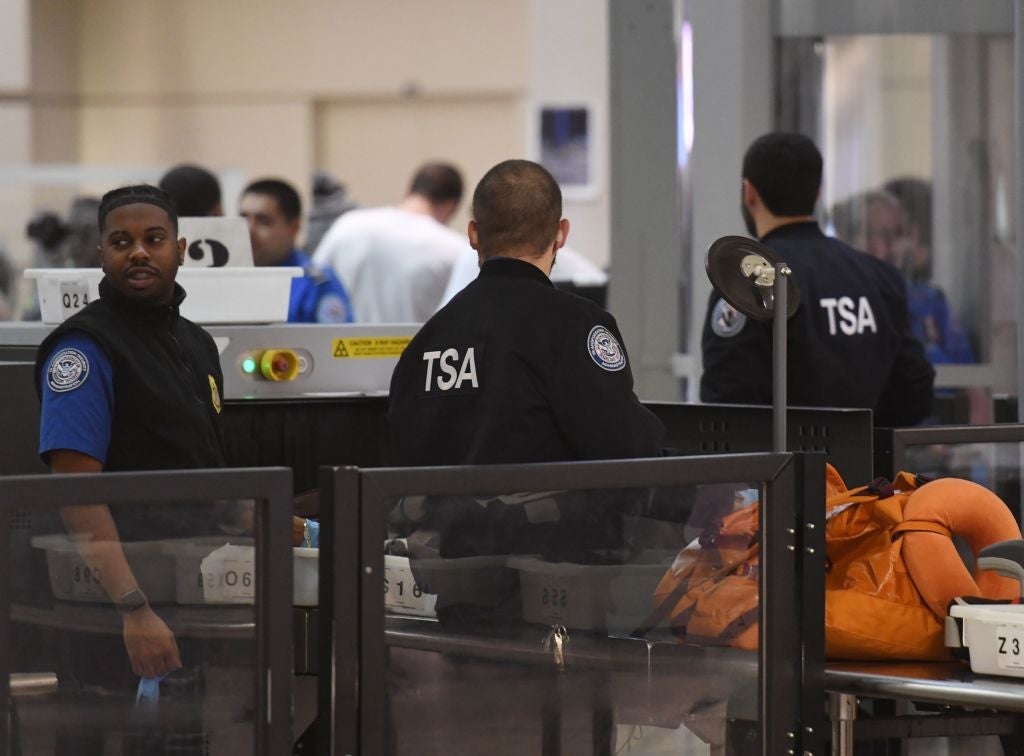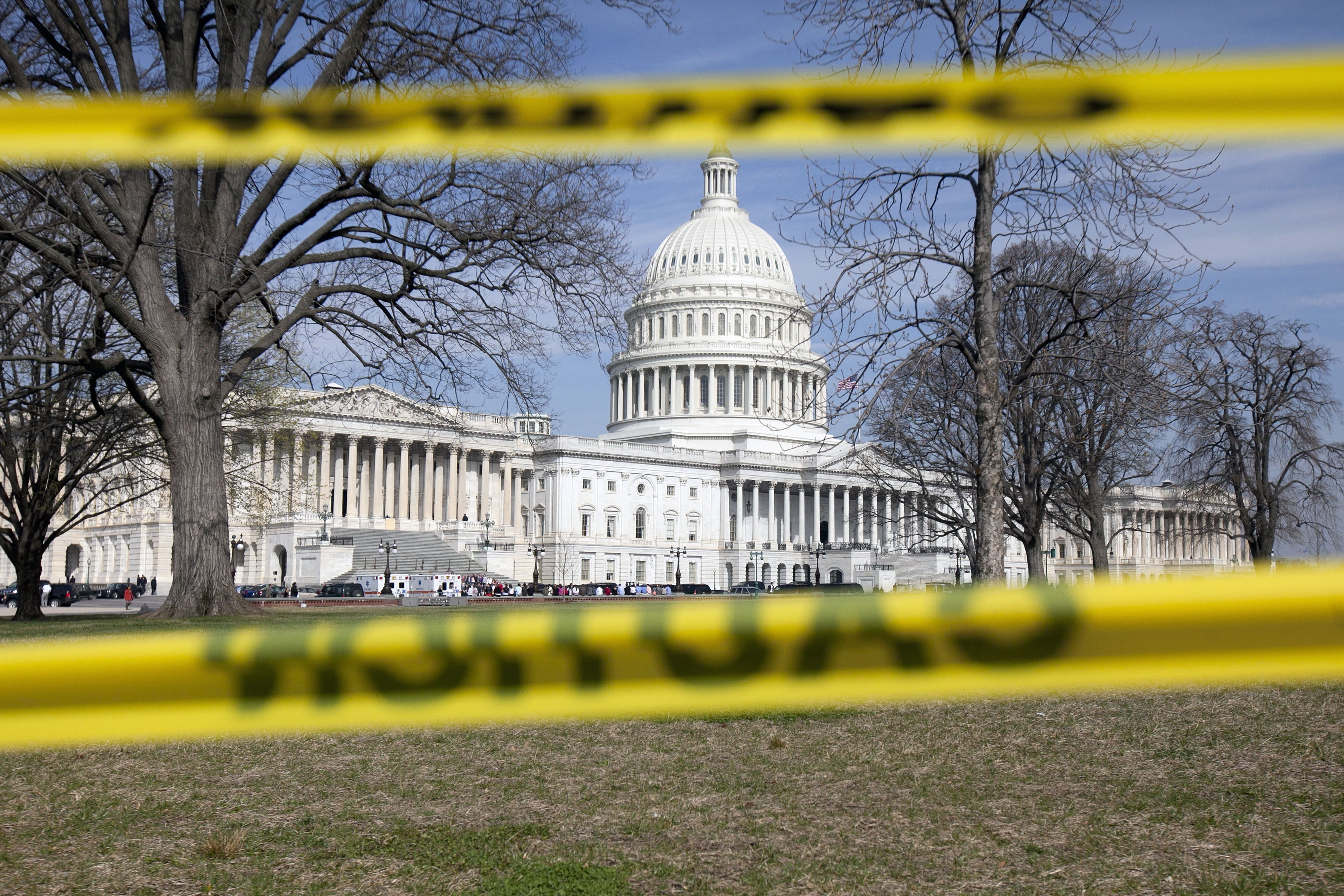Is It Safe for Airline Passengers to Fly During the Government Shutdown?
With the United States government sliding into its third week of a partial shutdown due to a standoff between US President Donald Trump and Congress on funding a border wall, airline passengers are wondering if flying is less safe with the tens of thousands federal aviation workers either off the job or not getting a paycheck.
Officers at the Transportation Security Administration aren't getting paid, and they're calling in sick in droves. Furloughed safety inspectors with the Federal Aviation Administration are demonstrating against the shutdown. At a protest at the Miami Airport last week, the furloughed inspectors held signs with phrases like "Was your airplane properly repaired and inspected today? The FAA does not know!" The demonstration was an effort to highlight the important role of the safety inspectors, who were deemed "nonessential" workers during the shutdown.
"My job is the safety of people," Charles Banks, an FAA safety inspector of 15 years who was at the demonstration, told the Miami Herald. "I have family flying too, and I can't protect them from here on the curb."
Some aviation experts agree that fewer workers checking safety standards could cause issues for airlines and passengers, while others say flying is safe and unaffected, but it's bad for the workers taking a pay hit.
"FAA maintenance workers, air traffic controllers, we don't have to worry about it because those people are there," Joe Del Balzo, a former acting head of the FAA and president of JDA Aviation Technology Solutions, told TPG. "They've been through it before. They may not like it, but they're there."
Del Balzo notes that the shutdown also has major effects on airlines. For instance, any airline that wants to register a new aircraft to its fleet or make changes to an existing aircraft, like adjusting its electronic systems, can't do so until the government reopens. "That requires FAA approval," Del Balzo says. "Those people are not working today."
Here is a rundown of what federal aviation workers are affected by the shutdown, which President Trump reportedly threatened to make last months or even years. This could change, as President Trump is set to discuss the shutdown in a prime-time address to the nation on Tuesday night.

Air Traffic Controllers and Potential Long-Term Delays
10,500 air traffic controllers working without pay, and with no assistance from 3,000 air traffic control support workers who have been furloughed, according to The Washington Post.
"Right now, we are asking our controllers to maintain the safety and efficiency of the system without the necessary contribution of 3,000 safety professionals," Paul Rinaldi, president of the National Air Traffic Controllers Association, wrote in a letter to Congress. "We wouldn't ask a surgeon to perform an operation without the assistance of a support team, and we shouldn't be asking air traffic controllers to continue working without support staff."

At least one long-term effect of the shutdown could be fewer air traffic controllers down the line, Del Balzo says, because the National Air Traffic Controllers Academy run by the FAA in Oklahoma City is also shut down.
Given how the training is scheduled, he says, some air traffic control recruits might not ever return to the academy, which could cause a shortage for ATC in coming years. Fewer ATC staff means fewer people to schedule flights, and could lead to flight delays and other issues down the line.
"When the government reopens," he says, recruits might be thinking "it's unreasonable to think I'm going to pick up the training exactly where I left off. Plus I'm going to lose time that was already invested, and I'll be thinking 'Is this the right career for me? Will I have security?'"
Del Balzo calls this an "attitudinal effect" that is hard to measure but is certainly there. "Remember, these are low-level employees, ATC recruits," he says. "Maybe you're making $30,000, if that much, probably not. You're out there on your own in Oklahoma City — that's going to weigh on people."
Pilots Union Speaks Out
Some voices in the industry, like Captain Joe DePete, president of the Air Line Pilots Association, which represents 61,000 pilots, believe that fewer FAA safety inspectors during the shutdown could cause "safety issues" for airlines and passengers.
"When any of their responsibilities are placed on pause due to a shutdown there are safety, security and efficiency gaps that immediately emerge," DePete wrote in a Jan. 2 letter to President Trump.
The union leader notes that with fewer FAA safety inspectors, it becomes more difficult to ensure the air traffic control infrastructure is performing at peak level. Airline and aircraft manufacturing oversight is stopped or significantly reduced. "These safety and oversight inspections will potentially allow for the introduction of safety issues that put passengers and airline crews at risk," he wrote.
And airlines themselves say they're feeling the stress of the shutdown, according to industry group Airlines for America.
"Some carriers are beginning to see the effects of the government shutdown — specifically regarding certification of new aircraft and the implementation of new training programs for pilots, as well as training for air traffic controllers and other aviation employees," a spokesman for Airlines for America told Aviation Today. "We urge elected leaders to reach an agreement and reopen the federal government quickly."
For example, Delta Air Lines is supposed to introduce an entirely new airplane, the Airbus A220, this month. Its first flight in revenue service is scheduled for January 31. Without FAA inspectors working, the plane's debut may be delayed, costing Delta money. An FAA spokesperson told TPG that "adding aircraft to an operating certificate is not an activity that takes place during a furlough," yet Delta is optimistic. The airline "will work with the FAA to ensure that the A220 is fully certified when it enters our fleet. No customer disruption or impact to schedules are expected," a spokesperson said.
Transportation Security Administration Officers
About 51,000 TSA officers have been deemed "essential" workers during the shutdown — meaning they need to show up for work, but won't receive a paycheck until after the shutdown is over, when lawmakers will (likely) approve back pay for them. CNN reports that, because they are working without a foreseeable paycheck, hundreds of TSA officers around the nation are calling out sick. Passengers say they are seeing backed up security lines at airports across the country.
"50 to 100 people are calling out at any particular airport," Hydrick Thomas, president of the TSA union under the American Federation of Government Employees, told The Washington Post. "They are not coming to work because they don't have the money to get to work. They're not just taking off. They're not saying, 'We're going to shut things down.' They are the lowest-paid employees in the federal government, and they don't have the money to get to work."

"I've never seen the line in LaGuardia that bad," a frequent flyer named John told ABC on Sunday. "And I probably take the shuttle 40 to 50 times each year, 25 round trips."
The TSA maintains, however, that security wait times across the nation are "well within TSA standards," according to a statement from spokesperson Michael Bilello to CNN. Officers, however, say they are feeling the sting of no paycheck. As federal employees, TSA officers are paid biweekly, and the first pay date that will be skipped is this Friday.
"It is completely unacceptable that the women and men who risk their lives safeguarding our airports are still required to report for work without knowing when they'll be paid again," J. David Cox Sr., president of American Federation of Government Employees National, the union that represents 44,000 TSA officers, said in a statement on Tuesday. "TSA Officers already have the least amount of rights of any federal officer, some of the lowest pay and highest attrition rates in government, and among the lowest morale of any federal agency. Working for weeks on end without being compensated – while already being short-staffed – only makes their situation worse."
In Del Balzo's opinion, the aviation professionals left on duty are still capable of adequately protecting flyers across the US. The shutdown, he says, has "nothing to do with safety, but it hurts the bottom line." He maintains that US aviation is "as safe today as it was before the government shutdown."
But Troy Tomey, an FAA safety inspector of four years, told the Miami Herald that keeping the government shut down leaves room for potential errors.
"We are another layer of safety," Tomey said. "We're the last check of the box. Taking us out of it, mistakes can happen."
TPG featured card
at Capital One's secure site
Terms & restrictions apply. See rates & fees.
| 5X miles | Earn 5X miles on hotels, vacation rentals and rental cars booked through Capital One Travel |
| 2X miles | Earn unlimited 2X miles on every purchase, every day |
Pros
- Stellar welcome offer of 75,000 miles after spending $4,000 on purchases in the first three months from account opening. Plus, a $250 Capital One Travel credit to use in your first cardholder year upon account opening.
- You'll earn 2 miles per dollar on every purchase, which means you won't have to worry about memorizing bonus categories
- Rewards are versatile and can be redeemed for a statement credit or transferred to Capital One’s transfer partners
Cons
- Highest bonus-earning categories only on travel booked via Capital One Travel
- LIMITED-TIME OFFER: Enjoy $250 to use on Capital One Travel in your first cardholder year, plus earn 75,000 bonus miles once you spend $4,000 on purchases within the first 3 months from account opening - that’s equal to $1,000 in travel
- Earn unlimited 2X miles on every purchase, every day
- Earn 5X miles on hotels, vacation rentals and rental cars booked through Capital One Travel
- Miles won't expire for the life of the account and there's no limit to how many you can earn
- Receive up to a $120 credit for Global Entry or TSA PreCheck®
- Use your miles to get reimbursed for any travel purchase—or redeem by booking a trip through Capital One Travel
- Enjoy a $50 experience credit and other premium benefits with every hotel and vacation rental booked from the Lifestyle Collection
- Transfer your miles to your choice of 15+ travel loyalty programs
- Top rated mobile app


